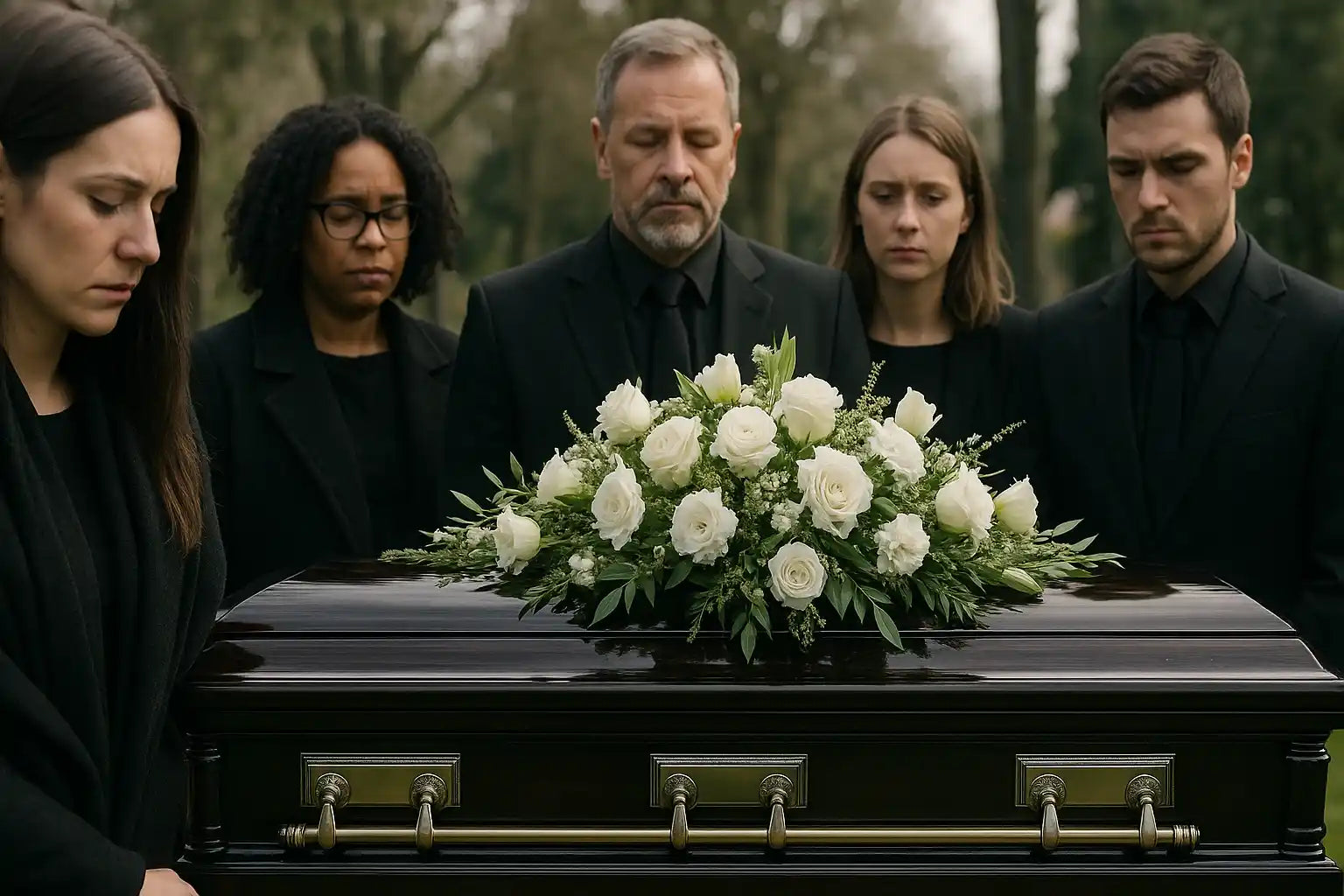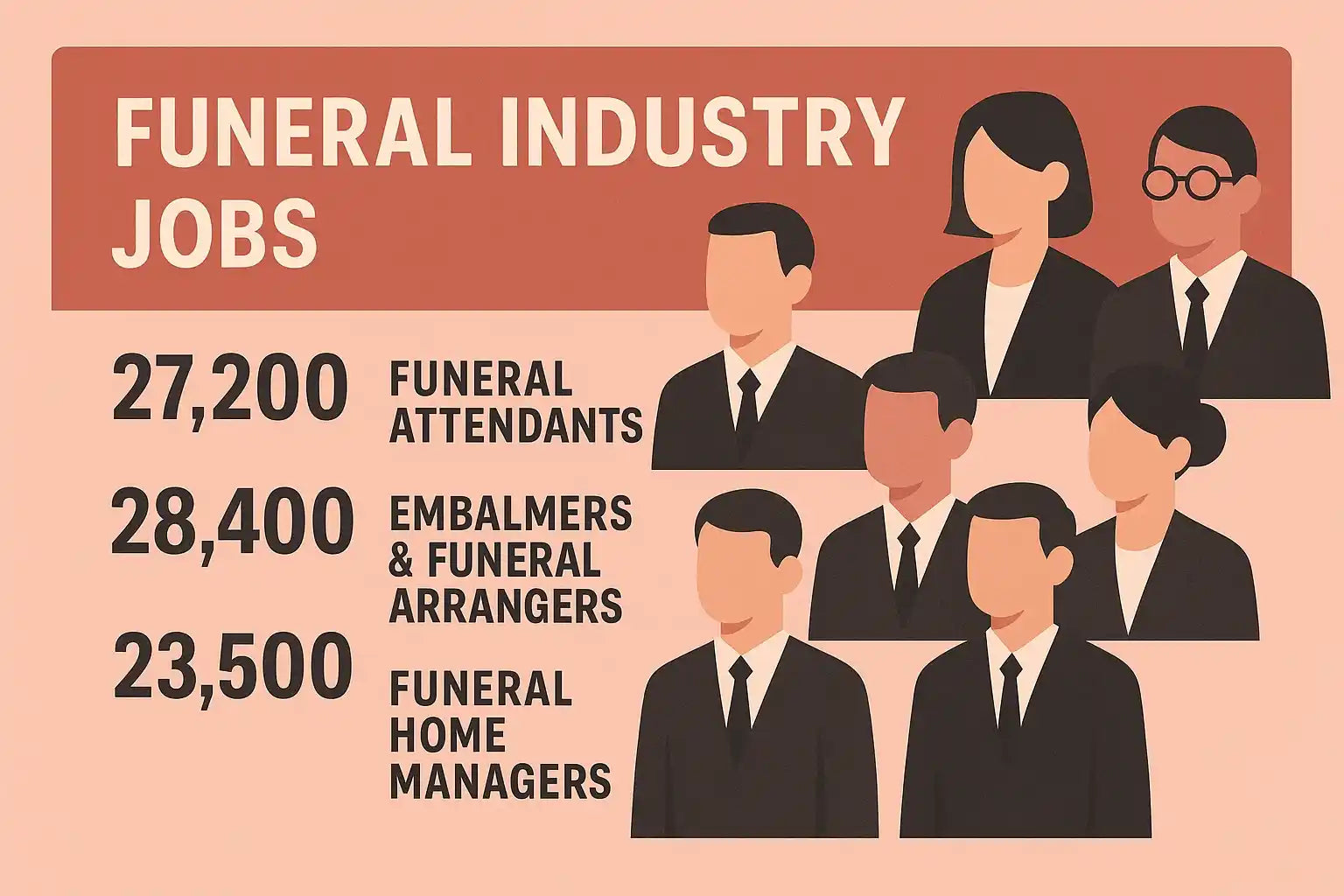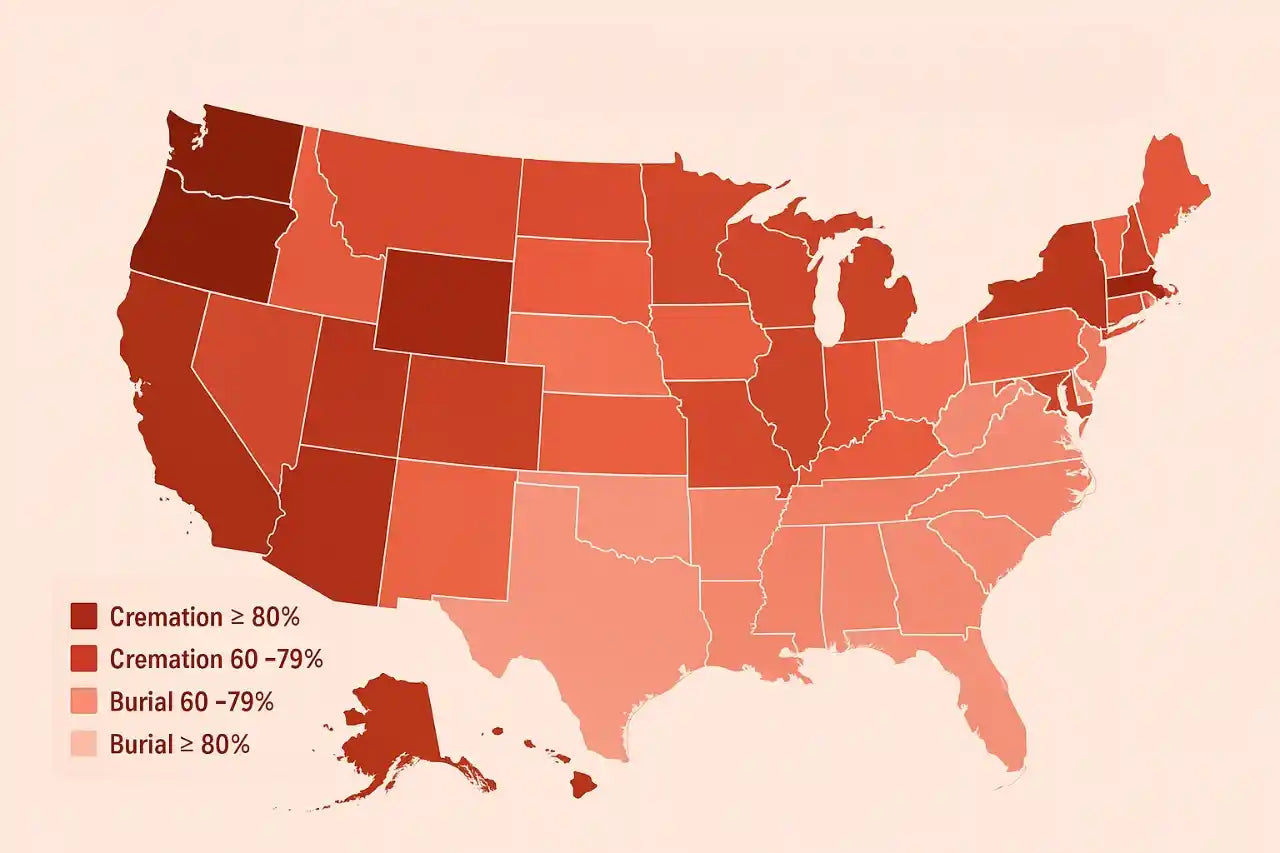Yes, you absolutely can have a funeral on a Sunday. There’s no universal rule that bans Sunday funerals, and in many cases, it simply comes down to the preferences of the family, the availability of the funeral home, religious customs, and sometimes local traditions.
Historically, Sundays were seen as a day of rest, especially in Christian communities, and some churches or cemeteries were reluctant to hold services on that day.

However, today, funeral services are far more flexible, and many families choose Sundays for very real, practical reasons. People often have the day off work, which makes it easier for more relatives and friends to attend without having to rearrange their entire week.
In some cultures and religious groups, Sundays may even be preferred if it means honoring the deceased as quickly as possible, especially in traditions where waiting several days isn't ideal.

That said, not every funeral home, church, or cemetery will automatically offer Sunday services. Staffing could be thinner, and in some places, there might be extra fees involved because it’s technically outside of normal operating hours.
If a priest, pastor, or religious leader is involved, they might already have their Sunday packed with regular services, and squeezing in a funeral could require advance planning.
In secular funerals or non-religious ceremonies, though, Sunday can be treated like any other day, especially when the focus is simply gathering loved ones at the right time.
Religious Views on Sunday Funerals
Christian Traditions
In Christianity, the idea of a Sunday funeral depends largely on denomination and local customs. Traditionally, Sunday has been regarded as a day of worship and rest, reserved for attending church and spending time with family. Some Christian communities, especially more traditional ones, prefer not to hold funerals on Sunday to honor this sacred rhythm.
 However, many modern churches understand the realities of people's lives and are willing to accommodate Sunday services when needed, especially if it means gathering loved ones who otherwise might not be able to attend. Catholic churches, for example, may still allow a funeral Mass on Sunday, though some prefer a simple prayer service instead.
However, many modern churches understand the realities of people's lives and are willing to accommodate Sunday services when needed, especially if it means gathering loved ones who otherwise might not be able to attend. Catholic churches, for example, may still allow a funeral Mass on Sunday, though some prefer a simple prayer service instead.
Protestant denominations often show even more flexibility, depending on the pastor’s availability and the congregation’s openness. It’s not seen as disrespectful to hold a funeral on a Sunday; if anything, the day’s deep spiritual meaning can make it even more powerful for those saying goodbye.
Jewish and Islamic Practices
In Jewish tradition, burials are meant to happen as quickly as possible, ideally within 24 hours of death. However, certain restrictions apply. In Orthodox Judaism, funerals and burials are typically not held on the Sabbath, which begins Friday evening and ends Saturday evening.

Once the Sabbath ends, arrangements can be made, and in urgent cases, a Sunday burial becomes appropriate and often necessary. Similarly, Islamic customs emphasize swift burial, usually within 24 hours as well, out of respect for the deceased. Holding a funeral on a Sunday is not an issue in Islam; in fact, the emphasis is on promptness rather than the day itself.
Communities will mobilize quickly to prepare the body and hold prayers as soon as possible, regardless of whether it falls on a weekday or a Sunday. The focus is entirely on honoring the person according to religious obligations, not on the day of the week.
Other Faiths and Secular Services
When it comes to other faith traditions and secular services, there is often far more flexibility. Hindu, Buddhist, and Sikh ceremonies tend to focus on the proper rites and rituals rather than the specific day they are performed. Scheduling a funeral on a Sunday for these communities is generally seen as perfectly acceptable, provided it aligns with the family’s wishes and the necessary religious leaders are available.
In secular or non-religious funerals, the decision often boils down to logistics and what feels right for the people involved. Without a rigid religious framework, Sunday funerals offer an opportunity to bring everyone together at a time when schedules are more forgiving. Ultimately, whether rooted in faith or simply in love and remembrance, the day matters far less than the act of gathering itself. What matters most is honoring the life that was lived, with as much care and meaning as possible.
Funeral Home and Cemetery Availability
Funeral homes and cemeteries are businesses, and like any business, they work within certain hours and staffing structures. Sundays are typically outside of normal business hours, which means availability can be limited. Some funeral homes simply don't schedule services on Sundays unless there’s a strong reason and enough notice. Others will agree to it but may charge additional fees to cover overtime pay for their staff, transportation services, or weekend surcharges tied to the cemetery.
Staffing is another piece of the puzzle. A full team may not be on-site on Sunday, the way it would be during the week, so fewer directors, drivers, and attendants might be available.

This can affect everything from setting up chairs to coordinating transportation between the funeral home and cemetery. It’s not that funeral homes are unwilling; it’s just that Sundays often require more effort to organize, and that shows up in the costs and the need for funeral planning.
In urban areas, you’re more likely to find funeral homes and cemeteries that can accommodate Sunday services because they deal with higher volumes and often have larger, more flexible teams. They’re used to meeting the needs of diverse communities where timing can’t always fit into a Monday-to-Friday window.
In rural areas, it’s a different story. Smaller funeral homes may have fewer staff, limited cemetery access on weekends, and stricter rules around when services can be scheduled. In some towns, Sunday funerals might be rare simply because the infrastructure isn’t built for it.
Either way, if a Sunday funeral is important to your family, it’s absolutely doable. You just need to start the conversation early, be clear about expectations, and ask the right questions upfront to avoid any last-minute surprises. When you find the right team that’s willing to work with you, it makes all the difference.
Can You Choose the Day of a Funeral?
Yes, in most cases, families can choose the day of the funeral based on what works best for them and the availability of the funeral home, religious leader, or cemetery. However, it’s not always as simple as picking any date. Religious customs, local laws, weekends, and even holidays can affect scheduling.
If you're aiming for a weekend or a specific day, it’s best to communicate early with the funeral director to make sure everything aligns, especially if you're expecting guests to travel or need special arrangements.
Can You Have a Funeral on Easter Sunday?
It’s technically possible, but it’s rare and often discouraged due to the strong religious significance of Easter Sunday, especially in Christian traditions. Many churches and cemeteries are either closed or focused entirely on Easter services.
Funeral homes may have limited availability or higher costs due to holiday staffing. If a family urgently needs a service on Easter Sunday, a private gathering or a non-religious setting might be more feasible. Most families choose to schedule services on the days surrounding Easter to avoid conflicts and ensure full attendance.
Can You Have a Funeral 7 Days After Death?
Yes, having a funeral a week after death is very common, especially when family members need time to travel or arrangements require more planning. There’s no universal rule limiting how long you can wait, but some religions or cultures prefer quicker burials. If embalming is involved, the body can usually be preserved long enough to hold the service a week later.
For cremation, the timeline is even more flexible. Just keep in mind that extended delays might require additional paperwork or coordination with the funeral home or cemetery.
Does a Funeral Mass on Saturday Count for Sunday?
Liturgically, a funeral Mass is separate from a Sunday obligation. While Catholic churches sometimes offer Saturday evening Masses that count for Sunday attendance, a funeral Mass isn’t one of them. It's held specifically for the deceased, not as a substitute for the weekly worship requirement.
However, if family or guests attend both the funeral and a regular Saturday vigil Mass afterward, that can fulfill the Sunday obligation. It’s a subtle distinction, but important for practicing Catholics who are trying to honor both the person who passed and their spiritual commitments.
Is There a Time Limit for a Funeral?
There’s no legal time limit for holding a funeral, but logistics, religious customs, and local laws often influence how soon it happens. Many families choose to hold a service within 3–7 days after death. In some cultures or faiths, burial is expected within 24 hours. If embalming is done, services can be delayed by several days or even longer. Cremation adds flexibility as well.
While there's no fixed rule, the longer you wait, the more you’ll need to coordinate with the funeral home and potentially obtain additional permits or approvals.
What Is the Most Common Hour of Death?
Research has shown that the early morning hours, particularly between 3 a.m. and 5 a.m., tend to be the most common time of death. This is especially true for people in hospitals, hospice care, or nursing homes. Some believe it’s related to natural dips in the body’s physiological functions during sleep, such as lower heart rate and blood pressure.
Others attribute it to the body’s circadian rhythm. Of course, death can occur at any hour, but early mornings are statistically observed more frequently in medical and care settings.


